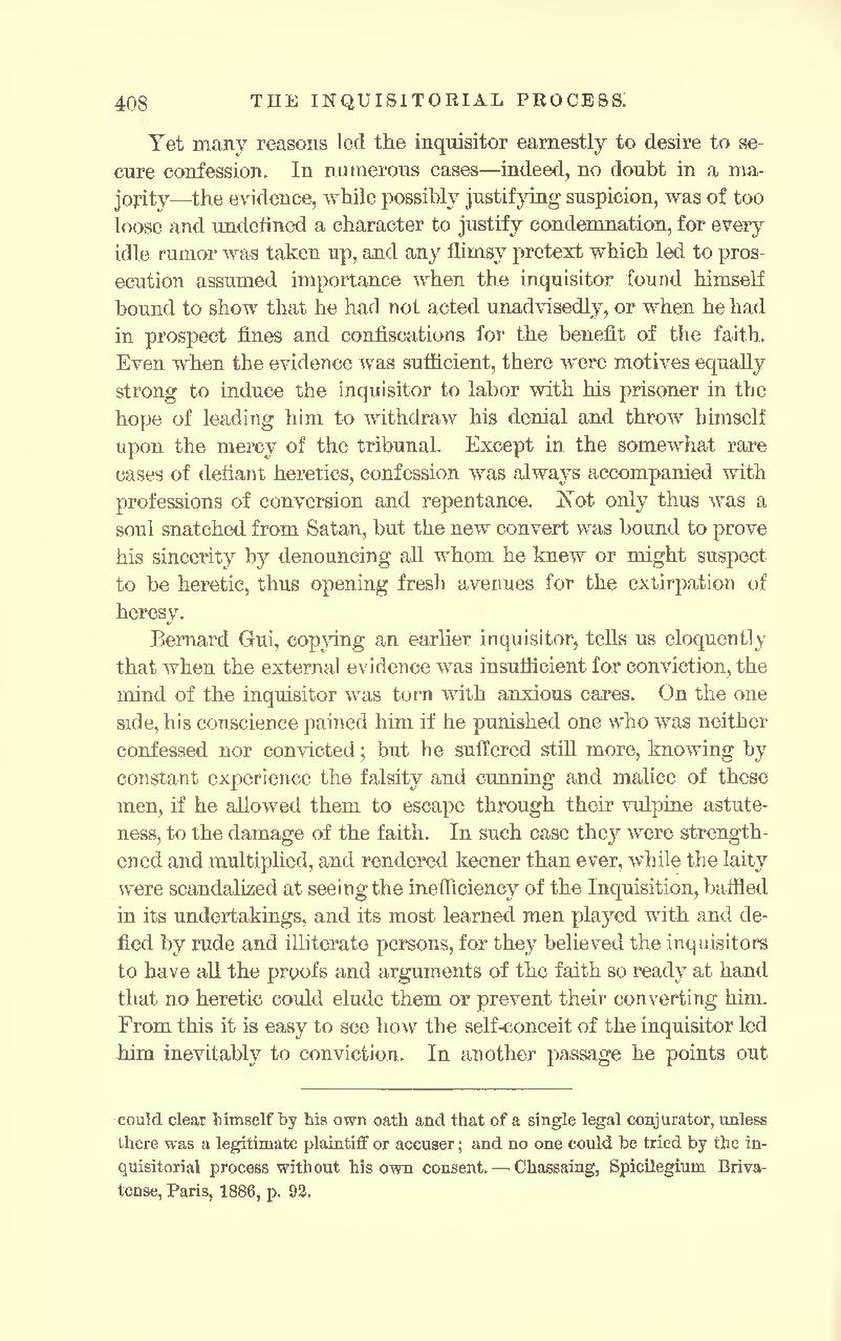Yet many reasons led the inquisitor earnestly to desire to secure confession. In numerous cases - indeed, no doubt in a majority - the evidence, while possibly justifying suspicion, was of too loose and undefined a character to justify condemnation, for every idle rumor was taken up, and any flimsy pretext which led to prosecution assumed importance when the inquisitor found himself bound to show that he had not acted unadvisedly, or when he had in prospect fines and confiscations for the benefit of the faith. Even when the evidence was sufficient, there were motives equally strong to induce the inquisitor to labor with his prisoner in the hope of leading him to withdraw his denial and throw himself upon the mercy of the tribunal. Except in the somewhat rare cases of defiant heretics, confession was always accompanied with professions of conversion and repentance. Not only thus was a soul snatched from Satan, but the new convert was bound to prove his sincerity by denouncing all whom he knew or might suspect to be heretic, thus opening fresh avenues for the extirpation of heresy.
Bernard Gui, copying and earlier inquisitor, tells us eloquently that when the external evidence was insufficient for conviction, the mind of the inquisitor was torn with anxious cares. On the one side, his conscience pained him if he punished one who was neither confessed nor convicted; but he suffered still more, knowing by constant experience the falsity and cunning and malice of these men, if he allowed them to escape through their vulpine astuteness, to the damage of the faith. In such case they were strengthened and multiplied, and rendered keener than ever, while the laity were scandalized at seeing the inefficiency of the Inquisition, baffled in its undertakings, and its most learned men played with and defied by rude and illiterate persons, for they believed the inquisitors to have all the proofs and arguments of the faith so ready at hand that no heretic could elude them or prevent their converting him. From this it is easy to see how the self-conceit of the inquisitor led him inevitably to conviction. In another passage he points out
could clear himself by bis own oath and that of a single legal conjurator, unless there was a legitimate plaintiff or accuser; and no one could be tried by the inquisitorial process without his own consent. Chassaing, Spicilegium Briva tense, Paris, 1886, p. 92
